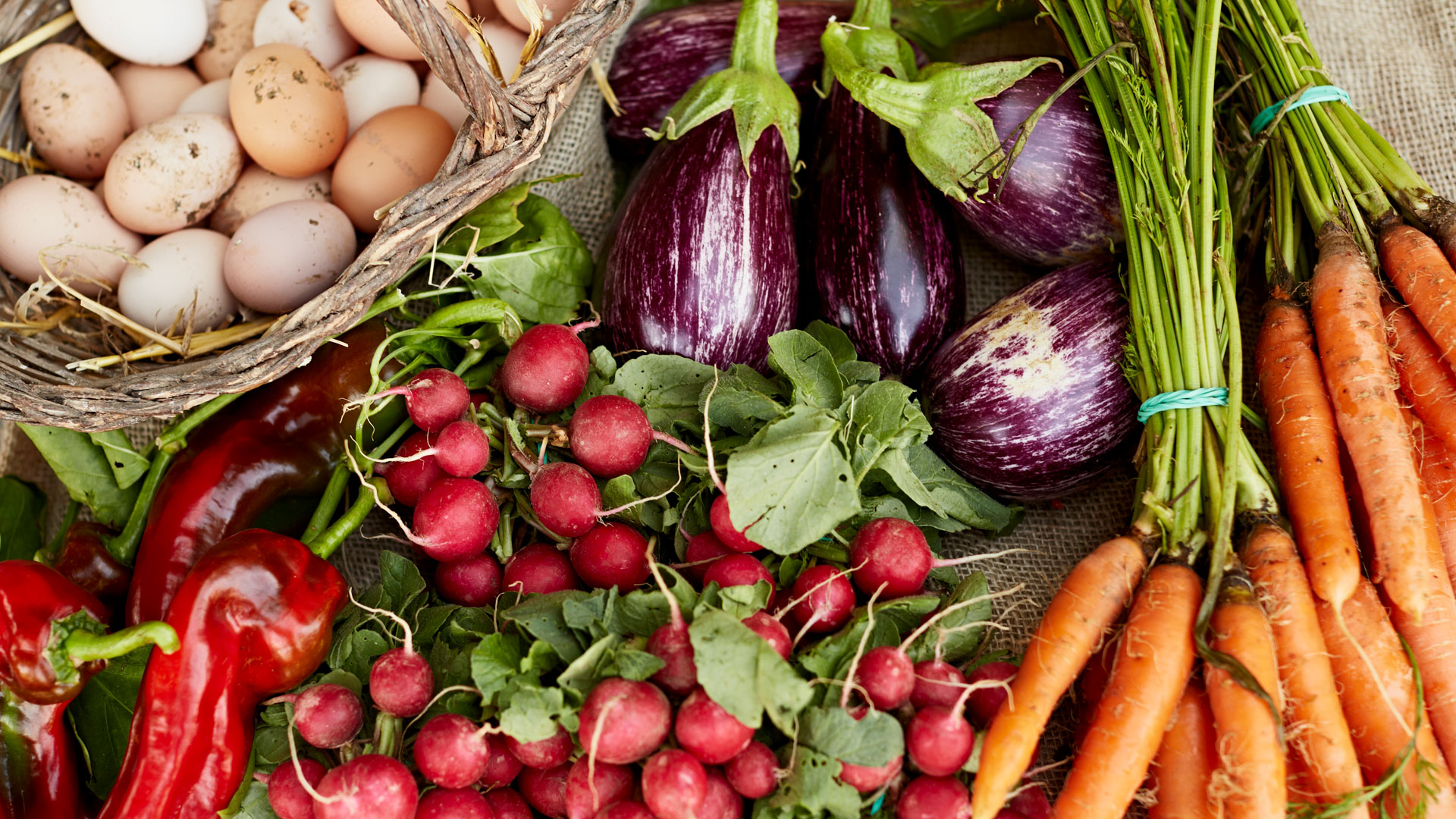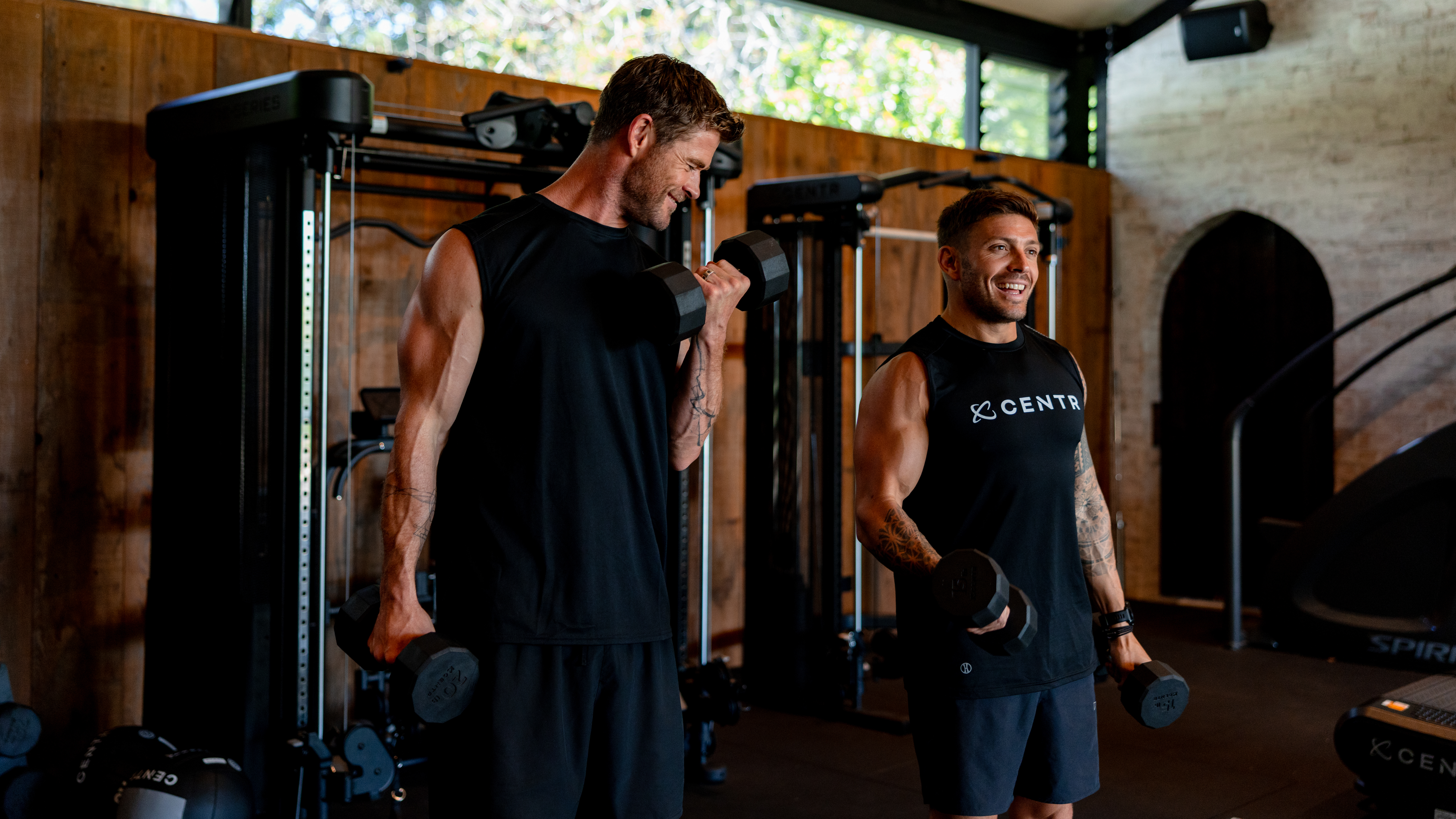5 foods for anti-aging
We’ve spoken to the experts to get their top foods for anti-aging and why these foods are so good for slowing down the clock on the aging process

We’ve looked into the top five foods for anti-aging and also foods you should be avoiding if you want to stay healthy for as long as possible.
While nothing can stop the progression of aging, there are some things that can slow it down or make it an easier adjustment on our bodies and minds.
For a lot of us, loss of mobility is a fear of getting older, so we’ve spoken to some experts to find out what you need to be eating to promote mobile joints and reduce muscle wastage. As we age, the rate at which our cells renew gets slower, so we’ve also found some of the best foods that are packed with antioxidants and anti-inflammatories to support your cells as they fight off free radicals.
Over the age of 50, you may find yourself developing vitamin deficiencies as your body changes. We’ve put together guides to the best vitamins for women over 50 and the best b12 supplements to help you stay on top of your health and wellness.
Can food slow down aging?
Your diet is one of the most important aspects of your health and also one of the easiest to control. While you may not be able to freeze time, you can eat healthful foods and avoid inflammatory foods that can negatively impact your future health.
Sophie Chabloz, who has a MsC in Food Science, Nutrition & Health from ETH Zürich, and is the co-founder & CPO of Avea Life, explains why our diets make such a difference to the aging process. “If you think about it, food is not only fuel for your body to produce energy but [it] also contains all the building blocks (the nutrients) that are needed to make new cells as old damaged ones are being replaced,” she says. “This is why the quality of your food is crucial to maintain optimal cellular health and perform at your best. Food truly has the power to change every cell in your body. Fresh and healthy foods can slow and even reverse some of the signs of aging as they support your body, making you feel energized and vibrant. While processed inflammatory foods are really taxing on your system and can actually accelerate aging.”

5 anti-aging foods to add to your diet
1. Lean meat
Dr. Brian Carson, Senior Lecturer and Researcher in Exercise Physiology at the University of Limerick, and co-founder of Whole Supp told us that the muscle loss associated with aging can be partially mitigated with adequate protein consumption. “One aspect of our diet that could potentially assist in minimizing the effects of aging on our healthspan and independent living is our overall protein intake, as this helps us maintain a healthy muscle mass and overall function,” he explains. “Populations that struggle to meet their protein requirements and who would benefit most from a higher intake of protein are older adults due to anabolic blunting in this population. This means that older adults do not respond from a muscle protein synthesis (or muscle building) perspective as their younger counterparts.”
Get the Fit&Well Newsletter
Start your week with achievable workout ideas, health tips and wellbeing advice in your inbox.
We encourage you to choose lean protein sources such as chicken or fish over red meat or heavily processed meats like bacon, as these have been associated with negative health outcomes.
2. Oily fish
Dr. Ioannis Liakas, Medical Director at Vie Aesthetics, a Harley Street medical and cosmetic clinic, tells us that the essential fatty acids in oily fish can help with joint issues. “Omega-3 fats in oily fish such as tuna and sardines can fight inflammation in stiff joints,” he explains. “Stiffness in our wrists, finger joints, and hips is one of the earliest signs of arthritis.” A 2020 study in Cells journal also found that diet may be a factor that influences symptoms in patients with rheumatoid arthritis, so stock up on those sardines.
3. Fruits and vegetables with antioxidants
You may be wondering, what is an antioxidant? Why do I need to eat them? An antioxidant is a substance that inhibits or removes oxidizing agents from within the body. Vitamin C, Vitamin E, selenium, and carotenoids are all examples of antioxidants that you probably already consume on a daily basis. Because antioxidants protect tissues from damage, they prevent inflammation from occurring in the first place. The best thing you can do to get a diverse range of vitamins, minerals, and antioxidants into your body is to “eat the rainbow”.
Dr. Liakas tells us about some of his favorite colorful fruits and veggies, all of which are rich in antioxidants:
- “Blueberries: these are rich in vitamins A and C, as well as an age-defying antioxidant called anthocyanin. This is what gives blueberries dark, stunning color,” he says.
- “Red peppers: ln addition to their high content of Vitamin C – which is incredible for collagen production – red bell peppers contain powerful antioxidants called carotenoids. These have a wide array of anti-inflammatory properties, and may help protect skin from sun damage, pollution, and environmental toxins.”
- “Broccoli: broccoli is an anti-inflammatory, anti-aging powerhouse packed with a variety of vitamins ranging from vitamins C and K, an array of antioxidants, fiber, and calcium.”
- “Papaya: packed with antioxidants, vitamins, and minerals that may help improve skin elasticity and minimize the appearance of fine lines and wrinkles.”
4. Nuts and seeds
Dr. Liakas explains, “Many nuts are a great source of vitamin E, which may help repair skin tissue, retain skin moisture and protect skin from damaging UV rays.” Nuts and seeds are also high in protein and fiber, which can help you to increase your overall protein consumption.
5. Legumes
An important part of the Mediterranean diet, legumes are rich in fiber, vitamins, and minerals and are excellent for promoting overall health. They are another great plant-based source of protein, so if you’re not a fan of meat, you can still increase your protein intake.

What forms an anti-aging diet?
A review in the British Journal of Nutrition indicates that inflammatory markers in the body can give us an idea of how healthy an individual is. These can be used to predict whether someone is likely to develop a disease. As such, a diet rich in antioxidants and foods with anti-inflammatory properties can be vital in the promotion of successful aging, as these can reverse the effects.
Chabloz is a great advocate for the Mediterranean diet, due to its anti-inflammatory properties. “The golden standard for lifelong good health and low inflammation remains the Mediterranean diet, which includes staples such as fruits & vegetables, whole grains, seafood, nuts, legumes and lots of olive oil and small amounts of meat, eggs, and dairy,” she says. “Add some fermented foods to it for optimal gut health and you have yourself a great anti-aging combo.”
An article in the Annual Review of Nutrition also indicates that the consumption of fruits, vegetables, legumes, and nuts positively impacts cardiometabolic risk. Not only does it reduce your risk of developing heart problems, but it may also help reduce the impact of pre-existing issues in this area. With this in mind, it’s never too late to adopt an anti-aging diet for a happier heart.

Which foods should you avoid as you age?
Chabloz explains that the quality of your diet is the most important aspect of successful aging. “Really, when it comes to eating for longevity/anti-aging, the most important thing is to choose high quality (preferably organic) foods and to stay away from anything processed with a long ingredient list, eat enough fibers from fruits and vegetables, and consume animal products in moderation (again, quality over quantity).”
Dr. Liakas tells us that we should be limiting our sodium and sugar intake to promote longevity. “It is a well-established fact that too much salt can be a problem for older adults, especially if you have a history of hypertension,” she says. “An ice-cold cola may seem very tempting if you are hot and thirsty, however, many drinks such as these contain a large amount of sugar; excess sugar also leads to obesity and other health issues. Additionally, caffeine not only keeps many people from getting a good night’s sleep, but it may also increase anxiety and make your heart beat more quickly and irregularly. Of course, we cannot forget that anything that’s deep-fried, such as potato chips and French fries, can lead to inflammation throughout your body and lowers the good cholesterol in your body.”
Take a look at other ways of adjusting your lifestyle as you age with our round-up of anti-aging exercises.

Lou Mudge is a Health Writer at Future Plc, working across Fit&Well and Coach. She previously worked for Live Science, and regularly writes for Space.com and Pet's Radar. Based in Bath, UK, she has a passion for food, nutrition and health and is eager to demystify diet culture in order to make health and fitness accessible to everybody.
Multiple diagnoses in her early twenties sparked an interest in the gut-brain axis and the impact that diet and exercise can have on both physical and mental health. She was put on the FODMAP elimination diet during this time and learned to adapt recipes to fit these parameters, while retaining core flavors and textures, and now enjoys cooking for gut health.
-
 Build blockbuster arms and abs with Chris Hemsworth's go-to dumbbell circuit
Build blockbuster arms and abs with Chris Hemsworth's go-to dumbbell circuitAll you need are adjustable dumbbells and 20 minutes
By Sam Rider Published
-
 Forget crunches—if I wanted to improve core strength I'd do this neck-friendly Pilates workout
Forget crunches—if I wanted to improve core strength I'd do this neck-friendly Pilates workoutAnd it takes just five minutes
By Maddy Biddulph Published